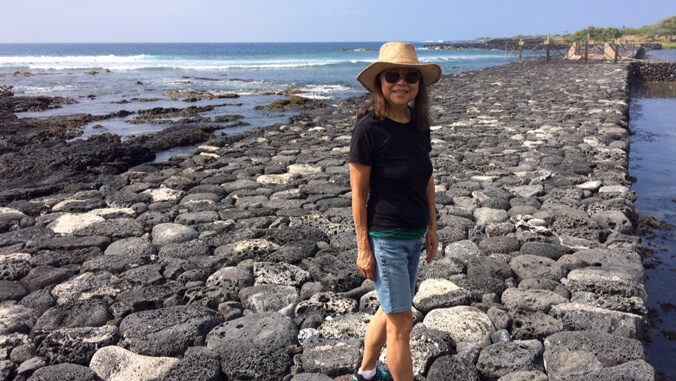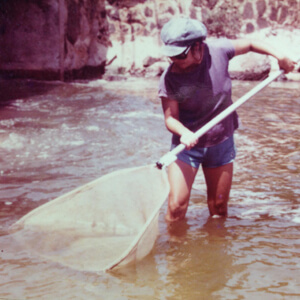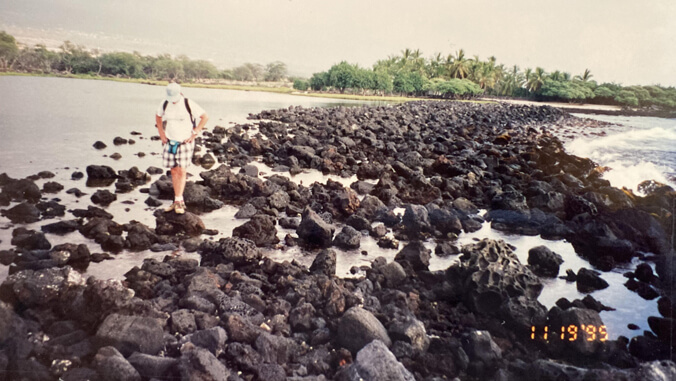
Kauaʻi Community College’s Kikuchi Center, which honors the late archaeologist and Emeritus Professor William “Pila” Kikuchi, is inviting the public to the center’s first artist showcase. Carol Araki Wyban, will present her book and artwork Tide and Current: Fishponds of Hawaiʻi at 4 p.m. on September 19 in the Learning Resource Center.
The Kikuchi Center’s opening event will showcase efforts to preserve the legacy of Kikuchi’s work with fishponds. The art inspired by Kikuchi’s research has been exhibited at the Bishop Museum and the Volcano Art Center and will now find a permanent home at the Kikuchi Center.
The Kikuchi Collection

Kikuchi’s career in archaeology and anthropology spanned five decades. Kauaʻi CC Archivist Jason Ford has been leading the efforts to archive and digitize the Kikuchi Collection since 2022. The collection is now partially available online at kikuchi.omeka.net. These include copies of Kikuchi’s Archeology on Kauaʻi newsletter and fishpond notes. Ford said his team has been prioritizing materials that are most beneficial to local and Pacific Region researchers, and materials with digital display quality.
“With the Kikuchi Collection containing a variety of multimedia materials, there remains a lot of items to be digitized for inclusion in the online repository,” Ford said. “We have made great progress in getting some of Kikuchi’s famous and lesser known research online, thus, making the online repository available to the public sooner rather than later. I know the community has been waiting on the repository, in some cases for decades, and so we are excited to be able to offer this now at this time.”
Inspired by Kikuchi

Wyban’s art highlights the importance of Hawaiian fishponds, which she describes as a vital link to ancient Hawaiian practices of sustainable land and water use. She has worked at maintaining and reviving ancient fishponds across the state, using Kikuchi’s research as a guidebook.
“Fishponds are a window into ancient Hawaiʻi and how the Hawaiians developed the land and water in a conscious, sustainable manner,” Wyban said. “They are a resource for the future because they can still be revived and used for food production, education and to teach people the importance of working with nature.”
The opening of the Kikuchi Center marks a significant step in making Kikuchi’s work accessible to the public and promoting ongoing education and research on Hawaiian fishponds.


